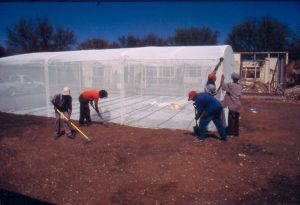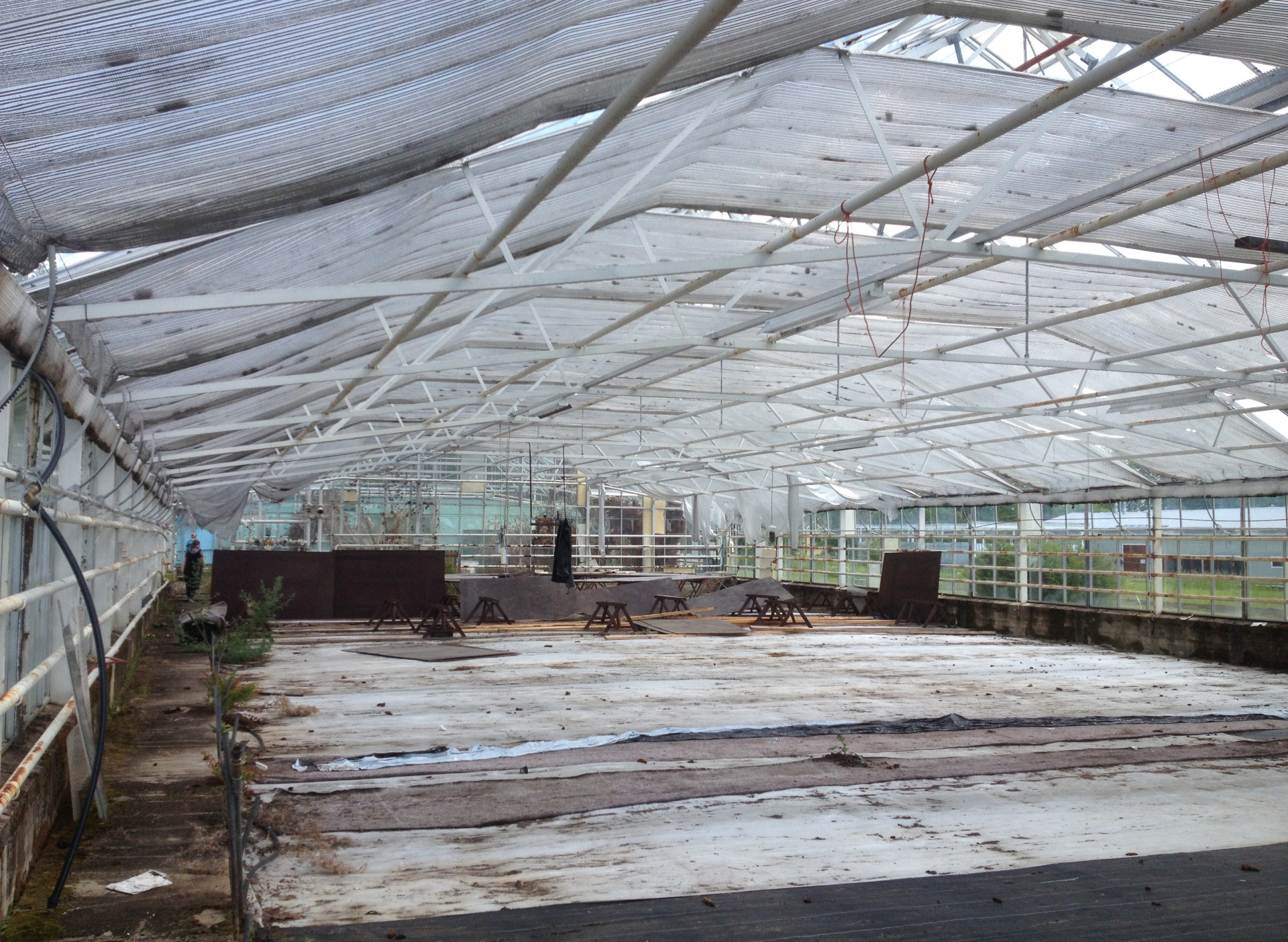The feasibility of hydroponics as empowerment concept – and why you will fail too.
There is no doubt that hydroponic farming systems are feasible as a commercial operation. Proof is in the application of this technology worldwide. I do not consider any business commercially viable until it has been in operation for at least 6 years. Within that period most growers will have experienced some type of product cycle and if they could not cope or adapt, they are no longer. So commercial hydroponic farms that are older than 6 years and are economically viable have certain characteristics in their management structure that one should take cognisance of when evaluating such a system as an empowerment project (and as an alternative business to invest in or an established grower for that matter).
There is no doubt in my mind that there is enough information available, so that is not an excuse for failing. If you have the capital, then setting up a system is relatively easy. There is a plethora of suppliers that will sell you anything and promise you the world of automation and control. So everything you need to grow can be set up, and it is not really that difficult.
The fresh produce market will always buy up the top quality produce at the best price. Hydroponics and greenhouses are designed to create an environment for the plant to grow at its genetic optimal therefor producing the highest quality yields possible. So markets should not really be a big problem as long as the price is right. Most markets, formal and informal, know something about hydroponics and they will want to get their hands on the produce by making big promises.
In order to understand what makes some long term commercial hydroponic farms so successful we need to look at how they are managed and a few other aspects.
Why are some commercial farms successful?
I have not been to all commercial farms to write a book such as “Good To Great”. But with most of the farms that I have come across there was a definite owner that made the calls and carried the responsibility of decisions being made. I can also tell you that they are not academic pen pushers but have to some extent ‘green fingers’. By that I mean they have a feeling or knack of farming. Growing crops hydroponically is something they are really interested in and they always explore new methods of improving the bottom line and efficiency of the whole system. It is not left over to some consultant or product supplier to make decisions for them.
So the most important points why they are successful are:
- There is a single manager that is in control (he might have a 2IC or more, but the buck stops with him)
- Decisions affect the manager’s pocket
- The owner or manager is passionate about farming and the whole business from growing to product development to selling.
- Although it is not bad using consultants for advice, I have found that the top growers know how to solve complex problems by themselves.
I guess there are many more reasons and it is not my intention in delving too deep into the success and failures of business in general. But the four points above stand out especially considering the focus of this article, and that is the success of hydroponic empowerment projects.
Why do I think hydroponic empowerment projects fail so much?
So what is an empowerment project that I am referring to. In most cases it is where various investors (not profitable institutions) have a need to create jobs through empowerment. So you might have a city council with more than enough land but with shortage of jobs. They do have money and some funds from investors to channel the funds in creating a farm. All the consultants are eager to join as they are paid per hour and the buyers get good quality produce providing promises of guarantee’s. This is the basis of empowerment projects in South Africa I am referring to. City councils can also be replaced by bigger corporate companies that have deep pockets.

Cheap and easy your might think. A good empowerment project with bad management. Nobody’s fault at the end. The technology is simply to complicated and risks too high for long term economic viability.
I have been involved with so many empowerment projects and unfortunately there are none that I know of that are economically viable today, or lasted more than 6 years without constant re-investment of capital from donors. It is honestly a great pleasure to see people with big smiles when they harvest their first produce and to observe their astonishment at the high yields achieved. Not just the high yields but also the high percentage of marketable yields. To my dismay most of these project lose their momentum after the first year. That is when the problems start.
The most critical problems that affect a commercial hydroponic farm are:
- Hygiene in the greenhouse, pack house and around the production area
- Strict routine and correct implementation of pruning, harvesting and spraying programs
- Constant mixing of fertilizers and monitoring the EC and adapting the program
- Managing diseases and pests and spraying
- Lack of accountability, passion and knowledge
I will discuss certain aspects that are problematic in empowerment projects and beginner growers. There are many other issues but I have found that these listed below cause the downfall of a lot of projects.
Hygiene and general site maintenance
These are just some of the tasks and they are complicated and vary throughout the year. Each phase of a crop’s life is different from the others. You cannot treat a simple crop like spinach the same during its growth cycle thinking you will achieve optimum results. In order to pay for the high running cost of a commercial hydroponic farm, you need optimum yields throughout the year. Adjusting greenhouse vents early in the morning and later in the afternoon is crucial. If someone is not responsible and understands why they must do it, a crop can be lost or at least significant yield losses can be experienced.
So much of the enthusiasm of new grower’s fade when they do not understand what and why they have to do certain things. If a person has never seen a bacterium, how on earth can they understand why hygiene is so important.
The ability of a greenhouse to maintain a microclimate is based on fundamental thermodynamics. Repairing, on the spot, torn plastic or opening windows during certain times of the day is extremely important. So many people don’t understand why, and if you don’t understand why you are doing it, why do it in the first place.
Adhering to strict routing in crop maintenance
Hydroponics is a demanding system. It does not tolerate skipped chores such as pruning, trellising and spray programs. There is very little buffer towards mistakes. Mistakes start to accumulate during the second and third year after which the backbone of the business fails.
A hydroponic farm does not empower people, they become slaves of a complicated dynamic system that many growers with graduate degrees cannot even master. If you are not in total control, have the ability to delegate with authority, it will fail.
Missing a chemical spray for one day can be disastrous. Due of the fantastic environment created by the greenhouse, crops are not the only living thing growing fast. Pests and diseases tend to spread much faster inside a greenhouse, so missing a day just add accumulative pressure to the plant. I have seen a cucumber crop lost in three days because of incorrect spray programme planning and implementation.
Scouting and evaluating the pest and disease pressure is very difficult. Only experienced growers can trust their intuition and base decisions when to spray on scouting results. This ability to make these decisions helps bring spray cost down making the farming business more profitable. New growers cannot take the risk of not spraying which increases cost of production.
Investors might have money but not enough knowledge of farming
A commercial farm cannot be run by a bunch of consultants and investors trying to be altruistic. At some point in time the whole project must be handed over and outside players must move away. It is at this point where the whole system comes to a standstill and it is not because of the growers that are not doing their job, it’s because hydroponics is just too complicated.
You are either forced into hydroponics (to maintain or create a market) or you love it. As a grower it is used as a tool to reach specific market niches or you create niche products in difficult markets or climates which are willing to pay premium prices.
I do believe investors can create a farm and provide jobs, but then they are no different from any other commercial hydroponic farm.
Creating a project to provide people with certificates is also nonsensical to me. That is just a marketing point for getting ignorant investors. A certificate that you worked in a greenhouse does not mean much. There are so few commercial greenhouse farms that the market for such certificates is meaningless. In any case, the people living where these projects are implemented are not close to the commercial farms. It usually means moving away from where they live.
Providing a guaranteed market
Any hydroponic system competing with commodity markets will also be doomed to fail. You cannot grow standard tomatoes while the same crop is also grown in open fields. The concept of guaranteeing a market is very optimistic if not plain ludicrous. No business will guarantee a market if the crop is not up to standard. I have seen tomatoes grown in open field that look better than those grown in greenhouses. So a greenhouse is not a guarantee of quality, neither is any form of hydroponic system.
I find it extremely dangerous making such an offer to investors and growers. Markets are dynamic and cannot be guaranteed. You never know when a new variety or crop will make yours obsolete. Even outlets such as fresh produce stores etc. change their strategies and market segments.
Do not use a complicated expensive hydroponic system to grow commodity crops in rural areas. Honestly, invest in a vehicle and buy fresh produce from one of the fresh produce markets or larger growers and add value. Then sell it to the local community with much less risk. In this way people are taught how to be entrepreneurs. That is empowerment.
Passion
I truly believe that passion plays a huge role in the long term success of any business. Hydroponics is not easy, it is even more hard work than making bricks. It is complex and there will be times when certain diseases cannot be controlled. You will suffer losses and you will not sell all the first grade produce you have. But they are not reasons why you should stop farming. They are reasons for some growers to stop because it is not in their blood to do so. If you already have a tough life, why go into a job that is just as tough and as many risks. It just does not make sense.
Just because you are offered an opportunity to work, does not mean you are going to be or have to be passionate about your new job. No number of shares will also make you passionate.
Basic feasibility of commercial hydroponic farming
Because hydroponics requires such a large investment compared to open field production, there are certain aspects that an investor (be it a grower or project manager) should understand before starting. The list is by far not complete, but these things come to mind:
- Don’t compete with commodity crops unless you have a monopoly and can sell at higher prices.
- Profitability of a commercial hydroponic system depends on high yields per square meter. Time before harvesting is wasted. You either grow high as possible up in the air with continuous harvesting or low on the ground with high densities and short crop growth cycle.
- You cannot afford not adding some sort of value to your product such as packaging, cutting or combining different products into one package.
- Setting up a greenhouse does not mean you can grow anything you want. Any greenhouse design has limitations within the climate it is built in. This implies that you might be able to grow a tomato crop, but if the market requires square tomatoes, and your system cannot provide it you still don’t have a market!
- The quality of water has a significant influence on the quality of the fertigation water that you can supply.
- If you rely solely on consultants and product suppliers to help with important decisions, you are ready for failure.
- On average, the pack house (where value adding takes place) makes more money than the farm with significantly less risk.
- For each crop you need a different fertigation system. Tomatoes and cucumbers cannot grow optimally on the same nutrient formulation.
To bring things in perspective. Parsley is one of the most profitable crops. It grows fast, planted at high densities, good continuous harvesting. So why does very few growers grow it. Well there is a very limited market. You cannot grow 1ha of parsley and think you will be successful.
In conclusion I would like to point out that I’m not saying hydroponics cannot be used to empower people. Commercial hydroponic systems are so complex and sensitive that the gap between success and failure is as close as playing the Forex markets. There are other types of projects I think that lend themselves to far better long term sustainable results.
Share This Story, Choose Your Platform!
Cotton aphid – Aphis gossypii
Cotton Aphid, or Aphis gossypii, is one of the more common insect pests found in almost all vegetable crops and [...]
Greenhouse white fly
Description Greenhouse white fly, also known as Trialeurodes vaporariorum is a sap feeder. The easiest way to find white flies [...]








